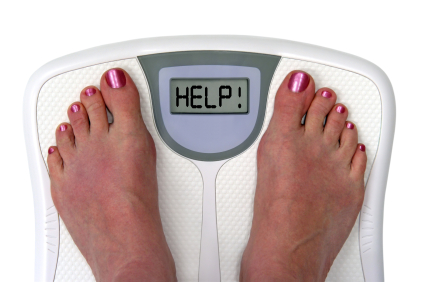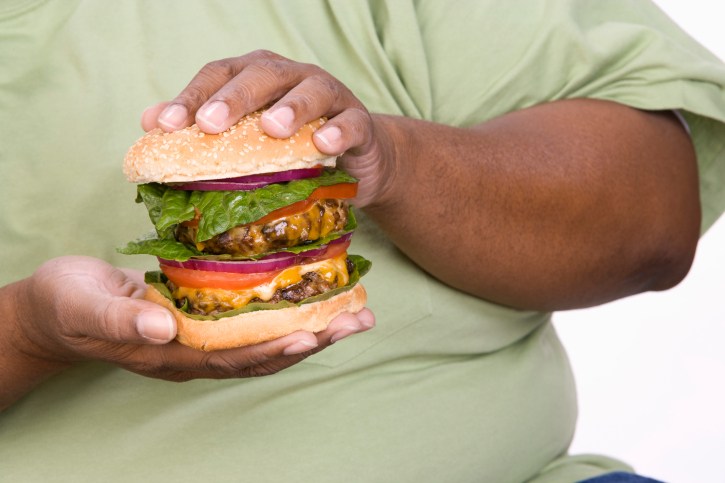What You Should Know: The Risks and Rewards of Bariatric Surgery
The National Center for Health Statistics report that 30% of adults (over 60 million) and 17% of children and adolescents (12.5 million) are obese - i.e. having a Body Mass Index (BMI) of 30 and higher. Obesity carries a high risk for a host of health conditions.

Severe obesity is difficult to treat with diet and exercise alone. Many obese individuals are being treated with surgery. Bariatric surgery is an operation in which the stomach and/or intestines are manipulated to promote weight loss by restricting food intake or changing how food is digested. While surgery is not a guarantee or quick fix, research shows that these types of surgeries are lowering the death rates for people with severe obesity.
CandidatesAdults eligible for surgery should be 100 pounds or more over their ideal weight and have a BMI of 40 or higher. Others with a BMI of 35 or higher are also eligible if they have other conditions like diabetes, sleep apnea, obesity related cardiomyopathy, or severe joint disease.
Bariatric surgery for adolescents and children, however, is controversial. Some experts feel that more research is needed to determine the long-term effects of bariatric surgery on their developing minds and bodies. Still, others argue that surgery for this population may improve their quality of life and prevent them from becoming sick and obese adults.
Surgery candidates should be evaluated by a medical team including, but not limited to, a medical doctor, psychiatrist and a registered dietitian. Additionally, prospective surgery patients must have failed previous non-surgical weight loss interventions and be committed to lifelong healthy habits, which include eating healthy, exercising regularly, attending medical follow-ups, and complying with vitamin and mineral supplementation.
Some candidates may be asked to lose weight before undergoing surgery in order to reduce risk by lowering blood pressure and blood sugar. This is to help decrease operation time and diminish the possible need to convert to open surgery during a laparoscopic surgery. Since these efforts were most likely unobtainable in the past, the patient, under a doctor's supervision, may undergo a meal replacement diet, very low calorie diet, or FDA-approved weight loss drug.
Those who are not eligible for surgery include individuals with:- Untreated major depression
- Psychosis
- Binge eating disorders
- Ongoing drug and alcohol abuse
- Severe cardiovascular disease with prohibitive operation risks
- Severe coagulopathy (bleeding disorder)
- Inability to comply with dietary instructions
Typical weight loss, for those who comply with post operative instructions, can range from 45%-70%, depending on the individual and the type of surgery. In addition to weight, other health risks and/or conditions can also be reduced or eliminated. These include, but are not limited to:
- Stroke
- Type 2 diabetes
- Severe sleep apnea
- High blood pressure
- Heart disease
Nonetheless, bariatric surgery provides no guarantees. In fact, some people who undergo surgery may have weight loss, but not enough to reach their goals. According to the National Institute of Diabetes and Digestive and Kidney Diseases (NDDK), evidence shows that many patients regain some of the lost weight over time. Weight can easily be regained from snacking on high calorie foods, living a sedentary lifestyle, consuming large portions, and stretching the pouch or separating stitches.
RisksBariatric surgery can have short-term and long-term risks including:
- Unfavorable reaction to anesthesia
- Infection
- Blood clots
- Lung or respiratory problems
- Leakage into the gastrointestinal system
- Bowel obstruction
- Dumping syndrome
- Gallstones
- Hernias
- Hypoglycemia (low blood sugar)
- Malnutrition
- Stomach perforation
- Ulcers
- Vomiting
- Death
Mandy Seay is a bilingual registered and licensed dietitian who holds both a bachelor's degree in nutrition and in journalism. After gaining 30 pounds while living abroad, Mandy worked to lose the weight and regain her health. It was here that she discovered her passion for nutrition and went on to pursue a career as a dietitian. Mandy currently works as a nutrition consultant and freelance writer in Austin, Texas, where she specializes in diabetes, weight management and general and preventive nutrition. She recently published her first book, Your Best Health, a personalized program to losing weight and gaining a healthy lifestyle. Please visit Mandy's website at Nutritionistics.com.
-
Juicing ~ Go Green, Go Lean
Would you like to feel energized, have radiant looking skin and a m
-
Take A Closer Look At Your Feet For Health Warning Signs
You walk on them, you squeeze them into shoes, and they can dev
-
Losing Weight: Start By Counting Calories
Americans are getting fatter. Were putting on the pounds at an alarmin
-
Returning up with a Healthy Weight Loss Diet by Knowing the Best Sources of Protein and Carbohydrates
One among the most important things you
-
What You Need To Know Before Starting A Low Carb Diet
In the last 12 months or so, low carbohydrate diets have captured the
-
The Top Ten Healthiest Diets
We all know that the healthiest diet is one high in fiber, fruits a
- DON'T MISS
- How Visualization Helped Me Lose 220 Pounds
- Meet Your Weight Loss Goal With This Helpful Advice
- New Year Resolution Part 3
- Losing Weight After 50 – How To Stay Motivated To Lose Weight
- Five Weight Loss Tricks
- A Few Important Belly Fat Diet Tips
- Stomach Exercise To Lose Belly Fat
- Dieting Mistakes - The Top Ten Countdown
- Effective Weight Loss Using Proactol
- Rev. Al Sharpton: “You Should’ve Worried About Me When I Was Obese”




